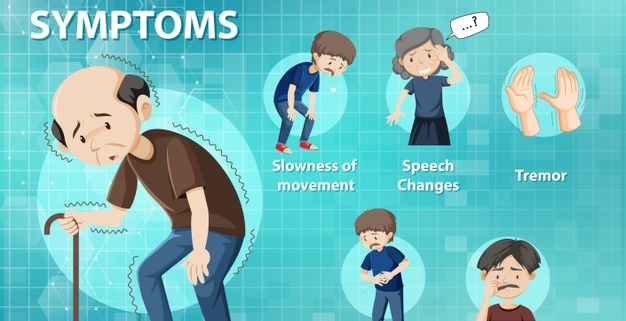Parkinson’s disease is a neurological condition that affects millions of people worldwide. It is a progressive disorder that can significantly impact a person’s quality of life. Unfortunately, there is no cure for Parkinson’s disease, but early diagnosis and treatment can significantly improve a person’s prognosis.
Early warning signs of Parkinson’s disease may be subtle and easily overlooked. However, recognizing these signs is critical for early detection and treatment. In this blog, we will discuss the early warning signs of Parkinson’s disease and how to recognize them.
Tremors
Tremors are one of the most well-known symptoms of Parkinson’s disease. A tremor is an involuntary shaking or trembling of a body part, such as the hands, arms, or legs. Initially, tremors may only occur on one side of the body, but over time they may become more widespread. Tremors usually occur when the muscles are at rest and disappear when the body part is in motion.
Bradykinesia
Bradykinesia is a symptom that affects a person’s ability to initiate and control movements. It may cause stiffness or rigidity of the limbs, making it difficult to move. Bradykinesia may also slow down a person’s movements, making them feel as if they are moving in slow motion. This symptom can be especially frustrating for individuals who are used to being active and agile.
Muscle Stiffness
Parkinson’s disease can cause muscle stiffness, which can make movements slow and difficult. This stiffness can also lead to aches and pains, particularly in the neck, shoulders, and hips. Muscle stiffness can also cause individuals to develop abnormal gait, which may make them more prone to falling.
Impaired Balance and Coordination
Parkinson’s disease can affect a person’s balance and coordination, making it challenging to walk, stand, and perform everyday activities. Individuals with Parkinson’s may find it difficult to turn around, change direction, or stop suddenly. This can make them more prone to falls and other injuries.
Changes in Speech and Writing
Parkinson’s disease can affect a person’s ability to communicate effectively. Individuals may experience a softer voice or slurring of speech. They may also have difficulty writing, as their handwriting may become smaller and more difficult to read. These changes in speech and writing can impact a person’s ability to communicate effectively, which can be especially challenging in social situations.
Loss of Smell
Parkinson’s disease can also affect a person’s sense of smell. Individuals may find it difficult to detect certain smells or may lose their sense of smell altogether. This can impact a person’s ability to enjoy food and other pleasurable scents, and may also make it more difficult to detect potentially dangerous odours.
Sleep Disturbances
Parkinson’s disease can cause sleep disturbances, including insomnia, restless leg syndrome, and sleep apnea. These sleep disturbances can impact a person’s quality of life and make it more challenging to manage other symptoms of Parkinson’s disease.
Depression and Anxiety
Depression and anxiety are common in individuals with Parkinson’s disease. These mood disorders may be caused by changes in the brain’s chemistry, as well as the stress and anxiety that can come with managing a chronic illness. It is essential to address these mental health concerns as part of a comprehensive treatment plan for Parkinson’s disease.
Conclusion Parkinson’s disease is a progressive neurological disorder that can significantly impact a person’s quality of life. Early detection and treatment are critical for managing symptoms and improving outcomes. If you or a loved one is experiencing any of the early warning signs of Parkinson’s disease, it is essential to seek medical attention promptly. With early intervention and treatment, individuals with Parkinson’s disease can continue to lead fulfilling and active lives.






